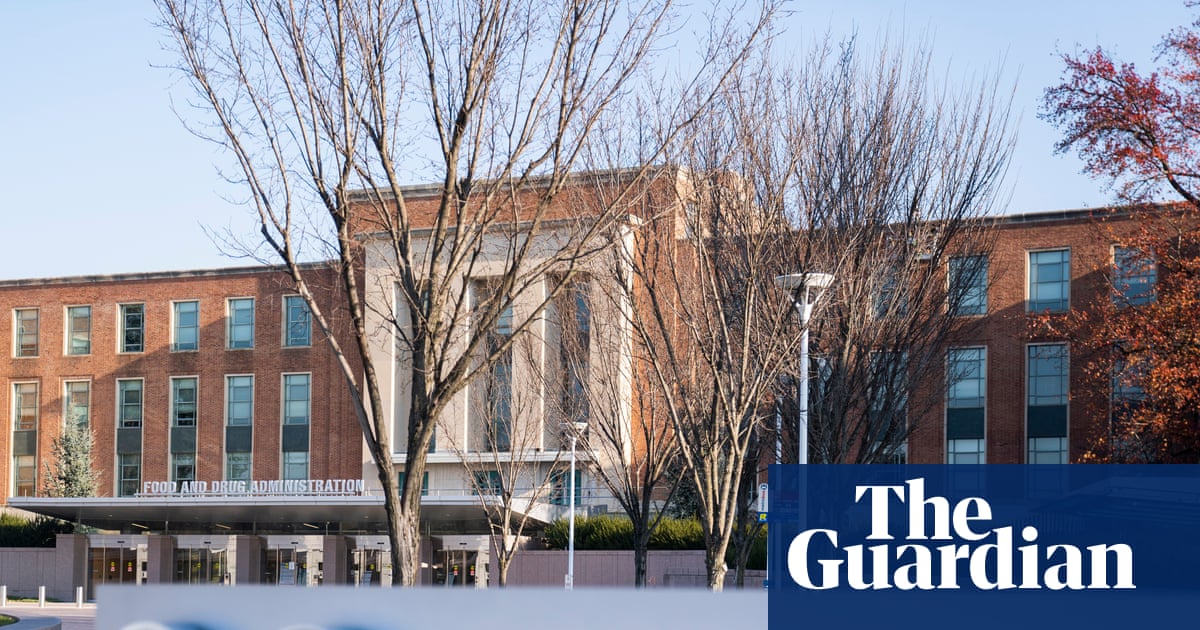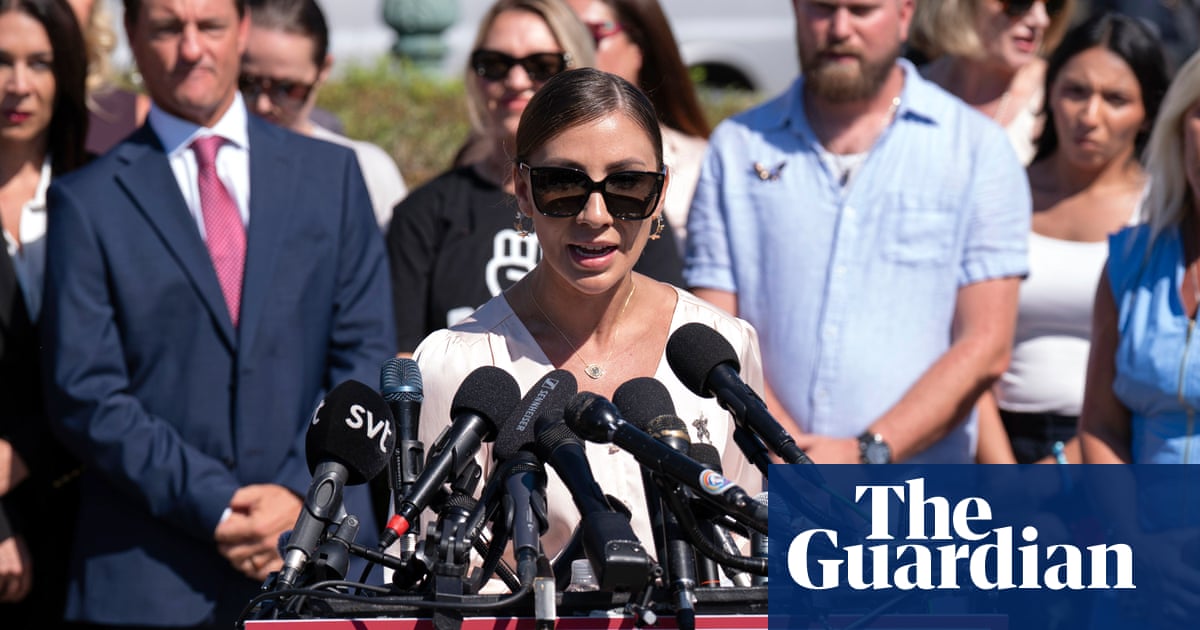Donald Trump has said he still plans to sue the BBC despite receiving the apology he demanded over a misleading edit of one of his speeches.
The row, over an episode of Panorama from last year about the Capitol riot in 2021, led to accusations of bias at the broadcaster and the resignation of two of the most senior executives at the BBC: the director general, Tim Davie; and Deborah Turness, the chief executive of news.
The US president previously said he would take legal action if he did not get an apology but on Friday evening Trump told reporters onboard Air Force One: “We’ll sue them for anywhere between a billion and $5bn, probably sometime next week. We have to do it.”
The BBC sent an apology to Trump on Thursday but said there was no legal basis for him to sue the public broadcaster over a documentary his lawyers called defamatory.
The corporation rejected his demands for compensation after lawyers for Trump threatened to sue for $1bn (£760m) in damages unless the BBC issued a retraction, apologised and settled with him.
The BBC has also agreed not to show the edition of Panorama again.
Trump said he had not spoken to the British prime minister, Keir Starmer – with whom he has built a solid relationship – about the issue, but that he planned to call him this weekend.
Turmoil erupted at the BBC after the clip re-emerged a week ago when a leaked internal memo highlighted the misleading edit, in which the US president appeared to say: “We’re going to walk down to the Capitol ... and I’ll be there with you. And we fight. We fight like hell.”
However, the verbatim quote from the speech was: “We’re going to walk down to the Capitol, and we’re going to cheer on our brave senators and congressmen and women.”
And it was more than 50 minutes later that he added: “And we fight. We fight like hell.”
The attack, which led to five deaths, including of a police officer, came shortly after Trump spoke at the “Save America” rally on 6 January.
A violent mob stormed the Capitol in Washington after Trump made false claims in the same speech that the 2020 election had been “stolen by emboldened radical-left Democrats”.
As many as 2,500 people entered the Capitol during the attack, with some participating in vandalism and looting.
More than 1,000 people were sentenced for their role, though later Trump issued a presidential pardon to all the attackers, including those convicted of violent offences.
Trump’s actions around the attack led to widespread suspensions from social media sites. In September, YouTube agreed to pay $24.5m (£18.6m) to settle a lawsuit brought by Trump, following similar settlements with X/Twitter and Facebook.
The money from YouTube will be put towards a new ballroom at the White House, while the Facebook settlement is earmarked for his presidential library, court documents showed.
In its letter to Trump’s legal team, the BBC set out why it felt there was no basis for the US president to sue. This included that the programme was only shown in the UK and that he was not damaged by it, having been re-elected shortly after.
The BBC also said it was not designed to mislead, having been only 12 seconds of a long speech, and was not meant to be considered in isolation but as part of an hour-long programme. which included multiple voices in support of Trump.
In an interview with GB News on Friday, Trump said the edit was “impossible to believe”.
“I made a beautiful statement, and they made it into a not beautiful statement,” he said. “Fake news was a great term, except it’s not strong enough. This is beyond fake, this is corrupt.”
The BBC chair, Samir Shah, sent a personal apology on Thursday to the White House and told lawmakers the edit was “an error of judgment”. The following day the culture minister, Lisa Nandy, said the apology was “right and necessary”.
It has since been discovered a similar edit was made in 2022, on the BBC’s Newsnight programme.

 German (DE)
German (DE)  English (US)
English (US)  Spanish (ES)
Spanish (ES)  French (FR)
French (FR)  Hindi (IN)
Hindi (IN)  Italian (IT)
Italian (IT)  Russian (RU)
Russian (RU)  2 hours ago
2 hours ago
























Comments